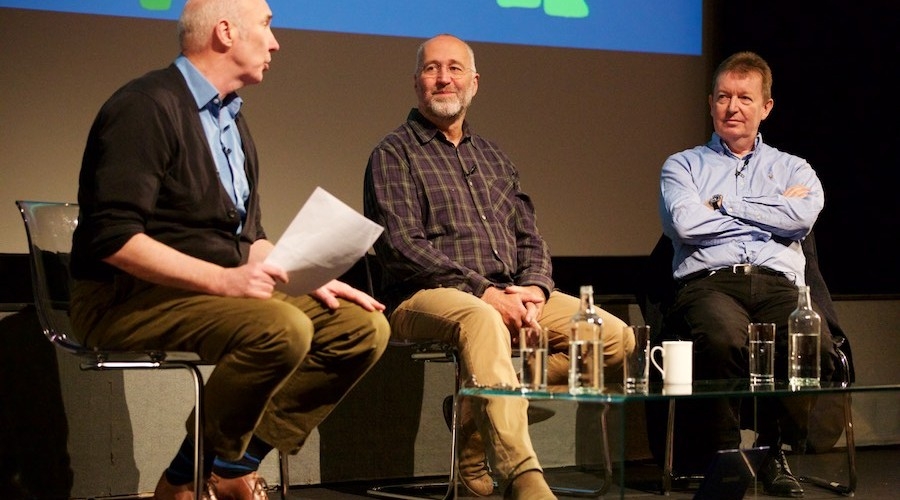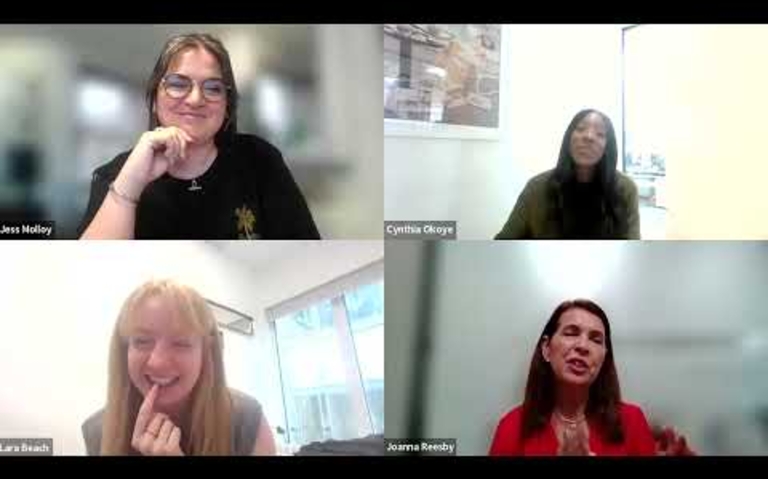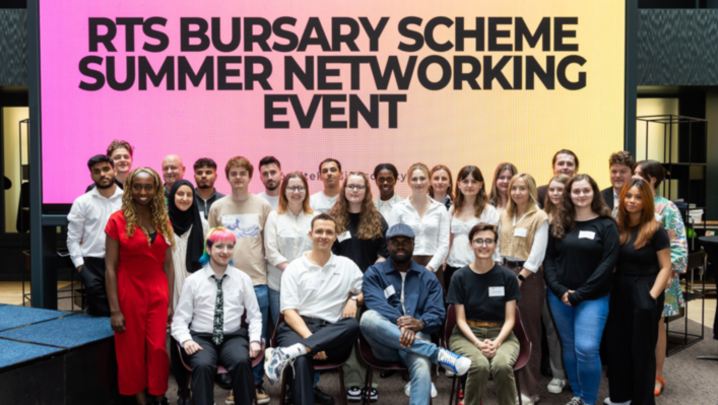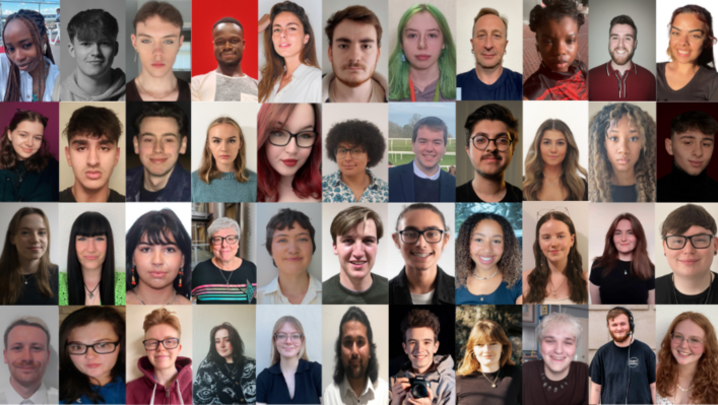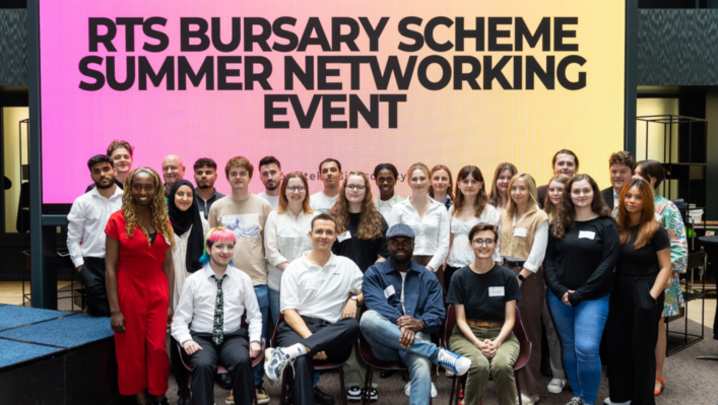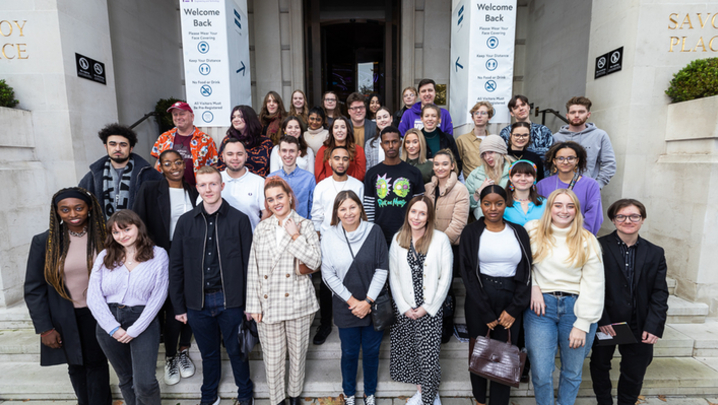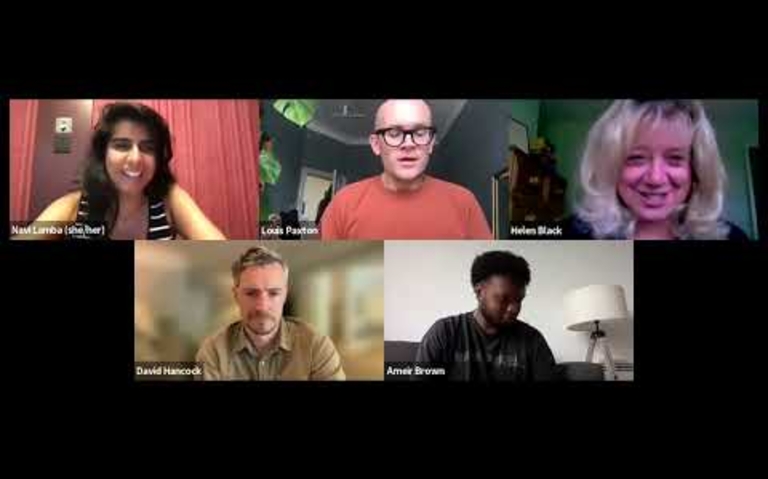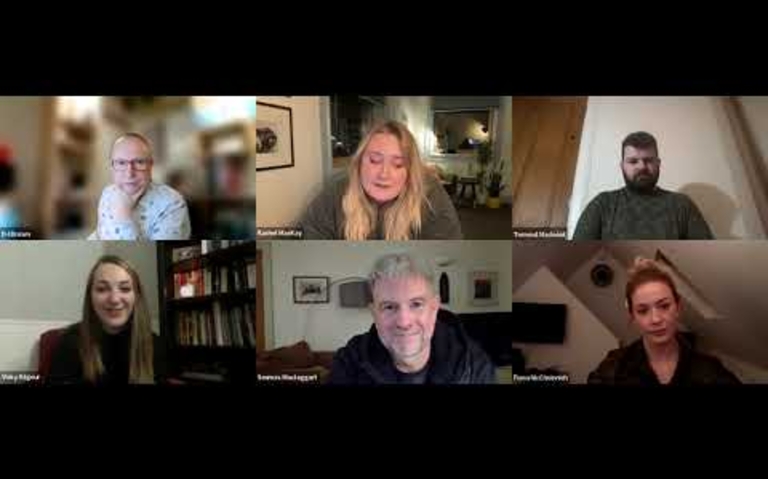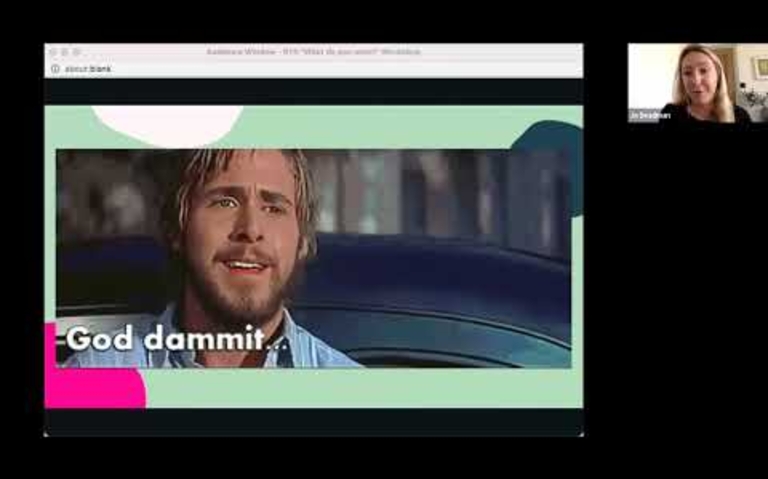This was according to two audio experts speaking at a packed RTS Craft Skills Masterclass.
Simon Clark is a sound recordist who specialises in TV drama; his credits include the forthcoming BBC adaptation of Wolf Hall and the Sky 1 thriller Mad Dogs.
Sound supervisor Robert Edwards' expertise is in live shows and events. He’s worked on The X Factor, FA, World Cup and Champion’s League finals, and the Oscar-winning documentary,Anne Frank Remembered.
Both men agreed that it was essential to focus on the sounds that are crucial to a show’s impact.
“I deconstruct sound, so, in a drama such as An Adventure in Space and Time (the story of how Doctor Who was created), I spent a lot of time isolating sound,” revealed Clark. “The idea is to try to get rid of the unwanted sound and concentrate on the wanted sound. In my case it’s tiny things.
“Later, I wanted people to be able to blend it… I want to create an atmosphere.”
“Basically, you look at sound as the wanted sound and the unwanted sound,” echoed Edwards, who recently won Resolutionmagazine's Broadcast Sound Engineer award. “You have to think about that when you’re approaching any project, and ask yourself what you’d like to hear, as opposed to what’s there that we don’t want to hear.”
Clark admitted that, for him, “sound is an obsession.” His first memories of any kind of entertainment were all aural. He was addicted to listening to the radio as a child. Now, he loves working as part of a team: “When it works, it’s like a fantastic love affair with 50 people,” Clark enthused.
Session chair, the former head of Wall To Wall, Alex Graham, observed that with home cinema and the advent of surround sound, TV audio was more important than ever. Paradoxically, however, those responsible for the sound were often treated as “the poor relation” on a TV set “because they are trying to stop you filming because they can hear an aeroplane that nobody else can”, observed Graham.
Speaking about his work on The X Factor, Edwards stressed the complexity of the job. “The sound has always got to match the shots,” he said.
It is not unusual for the bands featured on the talent show to need more than 30 hand-held mics, all of which need mixing. As for the unwanted sound, it is the music in the bands’ monitor speakers (a pre-recorded backing track) that no one else wants to hear.
A further 15 to 20 mics are used to record sound from the studio audience. In all, on The X Factor there are about 150 different sound sources, including reverb, echo, VTR and playback machines.
Explained Edwards: “It’s about how you organise all that. It is all very well to say, ‘Isn’t this impressive…’ but I have to organise it into smaller chunks to deal with it.
“The desk I use has 12 layers. The key to all of this is planning before you get to the studio. How you break the very big problems down into a set of simple problems?”
Working as a sound recordist on set, Clark’s job involves recording actors’ voice as clearly and brightly as possible. “You can always muddy things up, but it isn’t that easy to make the sound better,” he said.
As Graham pointed out, the sound quality on a TV drama should be so good that viewers are not conscious of it.
“Nobody in television understands sound apart from the sound people,” opined Edwards. “So, largely, you get left alone on a shoot to do your own thing. Understandably, in TV the focus is on the pictures, but without the sound you’re in a very sticky place.”
Edwards and Clark entered the TV industry via different routes. The former had read applied physics while performing as a musician in the evenings.
“For sound you need two things – an appreciation of systems and a basic understanding of electronics. Increasingly, that’s becoming IP,” said Edwards.
He was initially rejected by the BBC and ITV stations Granada and Thames because his colour vision was considered inadequate. “I was told that all sound engineers have to have perfect colour vision,” recalled Edwards, who has worked in sound for 40 years.
Undaunted, he applied to the ITV station, Southern Television. The company accepted him with the proviso that, if it didn’t work out within three months, he’d be sacked.
“It’s all about determination. I was determined to work in sound,” Edwards recalled. “If you are determined to do something, you will find a way.”
Coincidentally Clark’s colour vision is also imperfect. This, too, ruled out a conventional start to his life in sound.
“I do the nuts and bolts on the floor, recording people next to motorways whispering ‘I love you’ to each other,” he explained.
Lacking any formal qualifications – “I made a complete mess of school” – Clark’s first job was a low-paid position at a dubbing theatre. “They took me on for seven weeks and I stayed for seven years,” he remembered. “I realised I was in heaven. Because I was fascinated, I started learning on the job and sucked in all the knowledge I could.”
Clark continued: “When students ask me what skills are required for my job, I always say it is not very technical, but you do need to get on with people. You must not be annoying when you’re the person trying to stop filming.”
Students were shown a range of clips during the session. These included The X Factor, An Adventure in Space and Time and an encounter between Liverpool and Chelsea (won by the London club).
Perfecting the sound for a football match requires very different skills to working as a sound engineer in the more controlled environment of a TV studio. Both are all in in a day’s work for Edwards.
Graham wanted to know how much Edwards can manipulate the narrative of a football match by selecting different sounds.
“You’ve got a surprisingly large amount of control over the narrative. Like The X Factor, you’ve got a crowd there... There is a lot going on. Once again, it is about wanted and unwanted sound.
“Twenty years ago, you wanted to hear the ball being kicked so you could feel close to the action. The solution to that was to increase the number of mics around the pitch.
“The unwanted sound is the players swearing at each other. They swear after they kick the ball. Immediately the ball is hit, I have to go to another source – to where the ball is going to.”
Speaking from the floor, RTS CEO Theresa Wise asked if contestants on The X Factor had ever benefited from having their voice improved by the sound team.
To audience laughter, Edwards denied this had ever occurred. “However, for some of the guest acts we have had to use autotune,” said the sound supervisor. But he declined to name names.
Wise asked who was responsible for the poor sound quality on the BBC’s recent remake of Jamaica Inn. Clark replied: “Jamaica Inn was not the sound department's fault. One has to be slightly diplomatic... but it was a performance issue.”
Both Clark and Edwards urged students considering a career in sound to ask questions of people such as themselves. “Email us, text us, phone us…Try to get to watch us working,” encouraged Clark. “There is not an enormous amount of vocational training in sound available any more since the BBC stopped quite so much of it.
“Most of us are fairly generous with our time and want you to succeed, because we want to retire.”
Edwards added: “I get paid for doing my hobby… But you’ve got to really want to do the job… There aren’t a lot of people banging on my door saying, ‘I want to work on The X Factor’. Nobody wants to sit there and take the pressure. There isn’t much glamour in that side of it. It is quite a lot of hard work.
“The one thing I would say is that the best sound people I know are the people who plan well. You have to plan for every eventuality. There is no substitute for hard work and no substitute for experience.”
“In general, my advice to anyone trying to get into our field is passion,” stressed Clark. “I know people tend to think that sound recordists wear Jesus sandals and socks, drink real ales with embarrassing names and are a bit socially challenged. It is about being totally manic about doing it.
“Don’t expect it to be glamorous. A lot of people think ‘Great, I’ll be in the studio recording my favourite band.’
“No, I spend most of my time standing in rain storms desperately waiting for the actor to remember their lines.”
The speakers in the Craft Skills Masterclass: Sound were: Simon Clark, Sound Recordist; and Robert Edwards, Sound Supervisor. The session was chaired by Alex Graham, Big Eck Consulting.
The Craft Skills Sound Masterclass was an RTS afternoon event held at the BFI Southbank London Wednesday 25th November, 2014 produced by Helen Scott. By Steve Clarke

